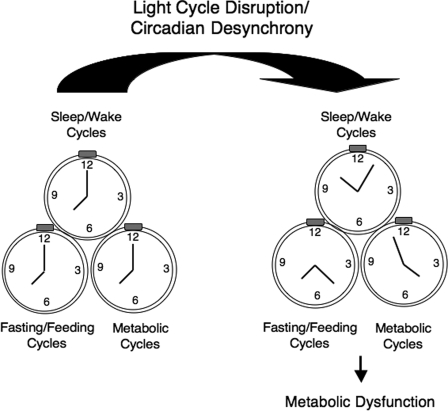Fig. 1.
Circadian desynchrony and metabolic disease. Behavioral cycles (including sleep/wake, fasting/feeding, and metabolic cycles) are normally aligned with the light–dark cycle. However, when circadian misalignment occurs, these cycles may become desynchronized from the external light–dark cycle, leading to adverse metabolic physiological consequences. Both clinical and experimental genetic approaches have begun to elucidate how circadian systems may contribute to normal glucose and cardiometabolic homeostasis.

